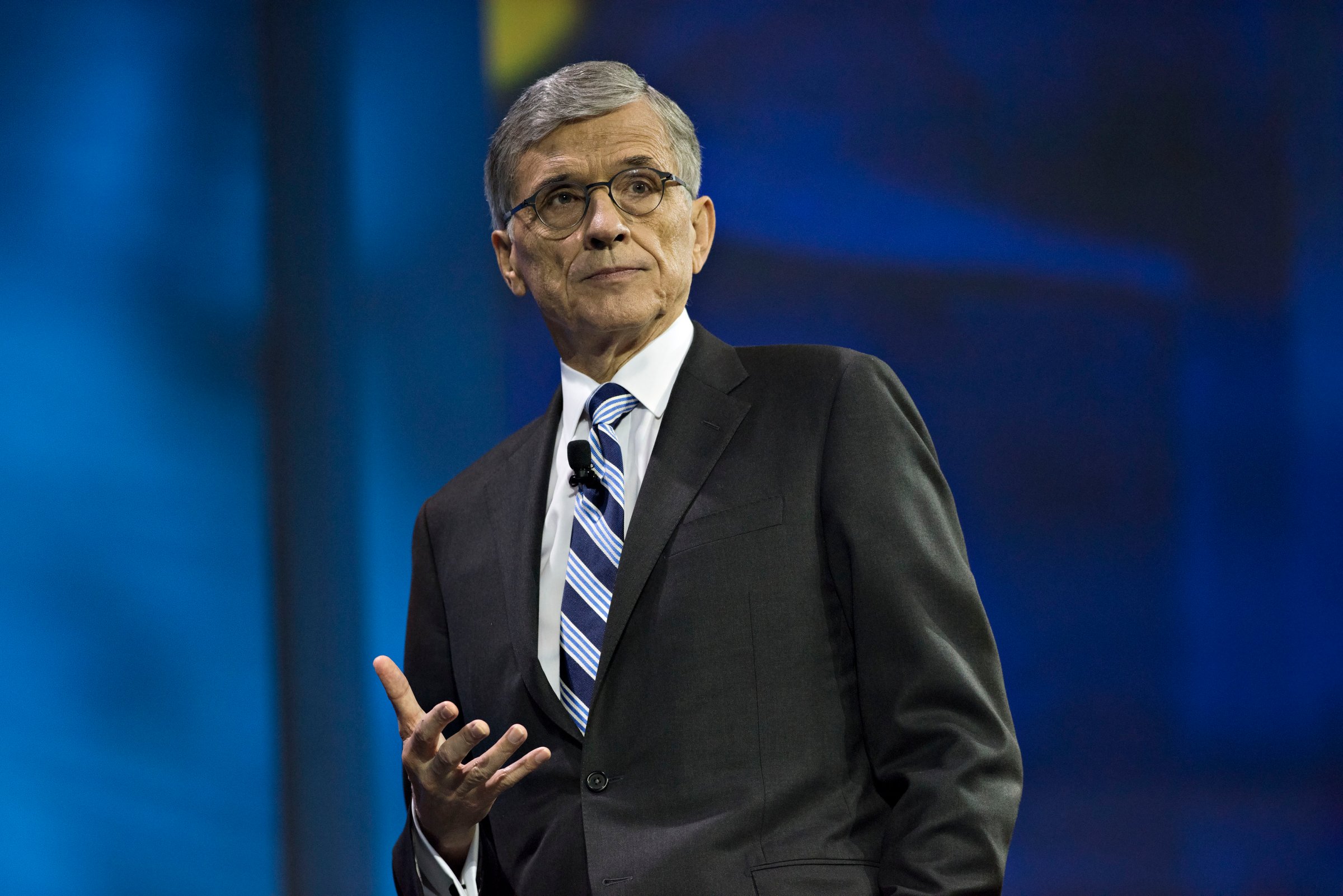
Tom Wheeler is going to have a busy year. The Federal Communications Commission chairman, who last year helped pass strong rules regulating Internet companies, is now turning his eye to the world of cable TV.
The cable industry, largely shielded from the disruption wreaking havoc in other media sectors, is now facing pressure from innovative tech companies. Wheeler, a former cable lobbyist, is helping pave the way for that to happen. “You know my mantra,” he told The Verge. “Competition, competition, competition.”
Here are three issues Wheeler and the FCC are tackling this year that could change the way we watch TV.
Throwing Out the Cable Box
There’s a skyrocketing number of online video companies out there. But most cable operators still require their customers to have an old-fashioned cable box, which helps them maintain control over what viewers get to watch. It’s rare to find a pay-TV provider that will let you use their box and remote control to easily surf Netflix in addition to live channels.
Wheeler wants to change that. Rules he proposed in January would allow third parties to create their own devices that can air television content. As an example, a new version of devices like Google’s Chromecast or the Apple TV might include the ability to watch live television with your Comcast cable subscription as well as online programming through Netflix.
In an op-ed on technology site Recode, Wheeler likens the idea to picking the landline phone you use with a phone company’s service. “My proposal will pave the way for a competitive marketplace for alternate navigation devices, and could even end the need for multiple remote controls, allowing you to use one for all of the video sources you use,” Wheeler wrote.
The cable industry is staunchly opposed to the idea. Cable companies have cast the proposal as needless government regulation, arguing that network-branded apps (think FX Now or WatchESPN) already let customers stream live TV on their phones, Roku boxes and other devices. But they have another good reason to cry foul: they stand to lose as much as $20 billion in cable box rental fees. The average person pays $231 to lease their box each year.
Helping Streaming Services Get Off the Ground
Pay-TV services delivered via the Internet have been notoriously difficult to launch. Just ask Intel, which sold its ambitious OnCue Internet TV service to Verizon as it struggled to secure the necessary streaming rights.
Part of the challenge lies in cable companies’ contracts with networks, which reportedly ban the networks from selling their programming to online TV services at the same time they’re on cable.
Wheeler and the FCC have launched a probe to determine whether these clauses should be allowed in the fast-changing media landscape, according to The Wall Street Journal. If the FCC chooses to strike down the clauses, it will be easier for companies like Google and Apple to launch their own TV services. It might also be easier for individual networks to start selling their channels a la carte online, the way HBO is doing with HBO Now.
Deciding On Cable’s Latest Mega-Merger
Last year, Wheeler helped nix the proposed merger between Time Warner Cable and Comcast, which analysts expected to be approved. Now he’s mulling another Time Warner Cable tie-up, but this time it’s with Charter Communications.
The combined company would be the second-largest broadband provider and third-largest pay-TV provider in America. If the deal falls apart, it could mark the end of a period of significant consolidation in the cable industry. Even if it’s approved, Wheeler may claim his pound of flesh through strict regulations that limit the merged company’s ability to control where else networks license their content.
More Must-Reads from TIME
- Donald Trump Is TIME's 2024 Person of the Year
- Why We Chose Trump as Person of the Year
- Is Intermittent Fasting Good or Bad for You?
- The 100 Must-Read Books of 2024
- The 20 Best Christmas TV Episodes
- Column: If Optimism Feels Ridiculous Now, Try Hope
- The Future of Climate Action Is Trade Policy
- Merle Bombardieri Is Helping People Make the Baby Decision
Contact us at letters@time.com